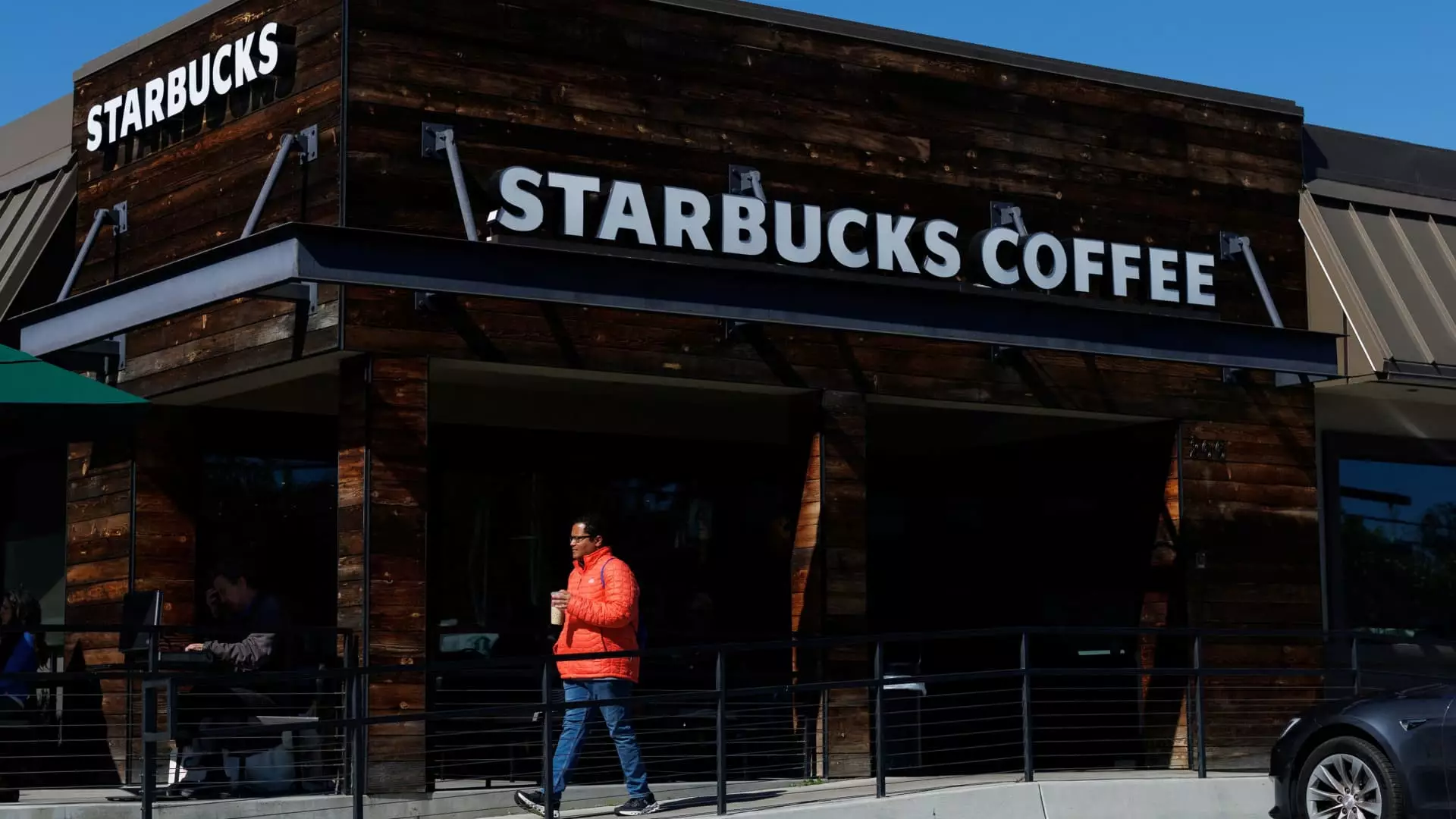The stock market is a barometer of economic sentiment, and when investors see red, the implications can be dire. Recent trading patterns indicate that restaurant stocks are sinking rapidly, driven by growing fears of an impending recession. The catalyst? The shockwaves from President Donald Trump’s aggressive tariffs on imports from numerous global trading partners. Even though analysts suggest that the immediate financial impact on most restaurant corporations might be limited, the underlying anxiety about inflation and consumer sentiment is palpable. As business becomes a tug-of-war conducted with consumer dollars, the ramifications of a sluggish economy can severely cripple the vitality of the restaurant industry.
Not Just Tariffs: The Barriers to Recovery
UBS analyst Dennis Geiger’s assessment speaks volumes. He mentions the manageable direct costs of tariffs related to select commodity prices, yet hints at something more insidious—the erosion of consumer confidence. In the world of eateries, the lines are clear: when consumer spending falters, so does the demand for dining experiences. Whether it’s the casual ambiance of Dine Brands’ Applebee’s or the fast-paced trendiness of Chipotle, the implications are significant. As inflation steadily creeps in, the average diner may be forced to reconsider their dining habits, affecting even those establishments previously thought to be recession-resistant.
The Coffee Conundrum: A Trade Issue with Perilous Consequences
Starbucks, a household name and a pivotal player in this landscape, provides an acute example of the collateral damage caused by the rising prices of key commodities. With coffee tariffs now impacting sources from vital producers like Brazil and Vietnam, there’s a growing concern about the repercussions on pricing and availability. Analysts point out that anti-American sentiment in international markets only exacerbates the situation—especially in China, an essential market for Starbucks. Past boycotts in politically charged climates could resurface, complicating business models that rely heavily on international cooperation.
The Broader Picture: Restaurant Categories in Trouble
Across the spectrum, no sector seems immune to the turbulence: casual dining, fast-casual, and even fast-food chains are seeing their stocks dip. The case of Dine Brands is representative of a broader trend, with Applebee’s and IHOP taking significant hits as the consumer base tightens their belts. Notably, fast-food chains, traditionally seen as a haven during downturns, are feeling the pressure too. Statistics reveal that last year’s decreases in consumer spending led to a marked decline in same-store sales, as customers opted for cost-effective options.
Yet it is perplexing that even low and middle-income demographics—that typically patronize fast-food chains in droves during tough times—are cutting back too. This strange yet significant shift might provide a glimpse into the future: a landscape where even the least expensive dining options are losing their appeal due to rising operational costs exacerbated by tariffs.
Lessons from the Market: Opportunities Amongst Adversity
Although the landscape appears grim for many, not all players are sinking. For instance, Dutch Bros has shown unexpected resilience by rallying despite broader market declines. The fast-growing chain’s ability to pivot and adapt in such choppy waters underscores a critical lesson: innovation and responsiveness to consumer preferences might offer lifelines in an otherwise sinking ship.
Moreover, chains like Cava prove that new entrants in the market can still capture consumer interest, even against a backdrop of declining stocks. The true winner in this saga may well be those restaurants that can enchant their clientele with unique offerings, thus forging stronger emotional connections—one that transcends mere transactional relationships.
In this landscape rife with concern, investors and stakeholders must remain vigilant, not only to safeguard their interests but to discern which establishments possess the agility to thrive amid adversity.

